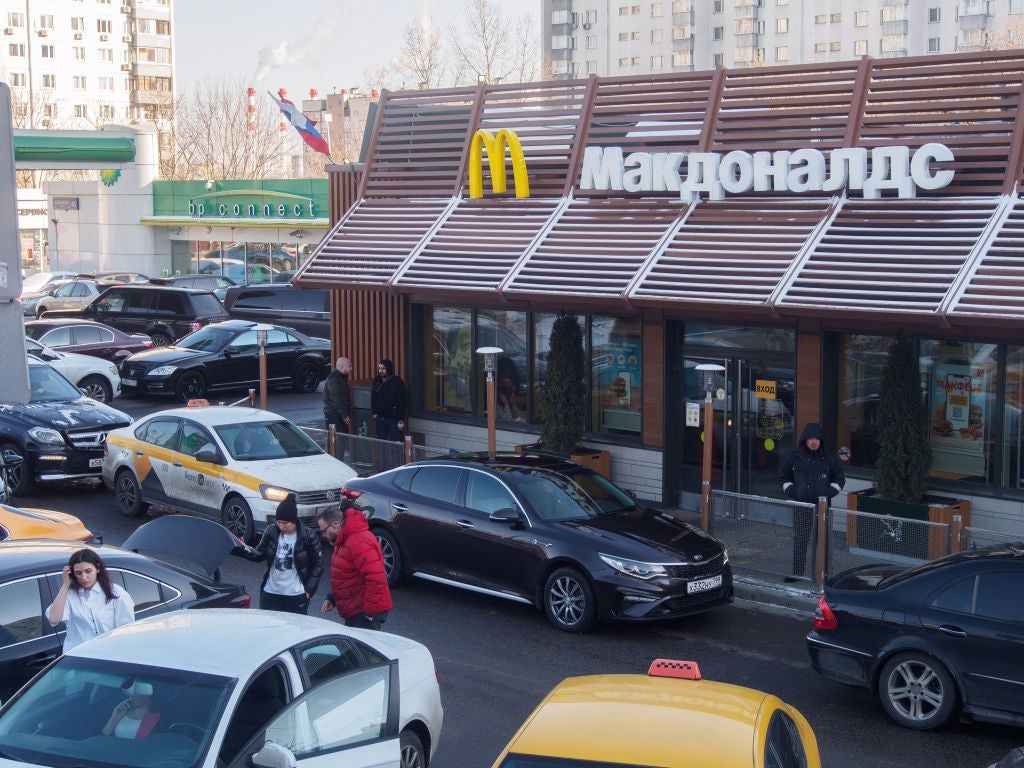
Russia’s ruling party, United Russia, said on 9 March that the government’s commission, which assesses laws that the government intends to propose to the State Duma, the lower house of the Russian parliament, had approved measures to nationalise the property of Western companies that are exiting the country in the wake of Russia’s invasion of Ukraine.
In a statement, United Russia added that, in an effort to prevent bankruptcy and save jobs, the commission had waved through a bill allowing for companies from “unfriendly states” to be put into external administration, if they are owned 25% or more by an unfriendly country.
If the law goes live, dozens of Western businesses in Russia could be affected.
For example, McDonald’s, which is just one of more than 100 foreign companies that have suspended or announced intentions to divest operations in Russia, owns 850 restaurants and has 62,000 employees across the country. If the company decides to permanently shut down its Russian operations, its properties could be seized and put into external management, as appointed by the Russian state.
“Russia has destroyed its credibility as a market economy in numerous ways over the past two weeks,” says Maximilian Hess, a fellow at the Foreign Policy Research Institute. “First capital controls, then asset freezes, then announcing a technical default, and now this latest expropriation.”
“It is clear the Russians don’t care about the Washington consensus, the international market economy, or a world in which they are under sanctions. Russia is completely devoid of capital. Foreign direct investment is gone. So yes, they are trying to expropriate assets, but right now the assets aren’t worth much anyway, so why even bother to do this? It just leaves them with expropriation lawsuits and claims to settle one day.”
The effectiveness of the commission’s law is also called into doubt by the fact that Western companies looking to sell their operations will find it nigh on impossible to do so considering the state of the sanctioned and free-falling Russian economy.
In the coming weeks, therefore, the Kremlin may take the proposed law even further and look to seize or coerce foreign companies that have suspended operations (such as McDonald’s), rather than those (like BP) that have announced plans to sell assets and leave the country.
More coverage of the Ukraine invasion from Investment Monitor:
- ‘Who’s going to travel here or invest now?’: The impact of the Ukraine crisis
- Taiwan’s semiconductor ban could spell catastrophe for Russia
- Which countries are most exposed to interruption in Ukraine food exports?
- What impact will the Russia-Ukraine conflict have on the tourism industry?
- Will the Ukraine invasion impact the FDI attractiveness of CEE countries?
- The impact of the Russia-Ukraine conflict on trade
- From Soviet steel to modern missiles: The Indian-Russian alliance explained
- What impact will the Ukraine invasion have on wheat prices?
- Will the West’s sanctions against Russia work?
- From hamburgers to helmets: How foreign companies in Ukraine are supporting the war effort
- Tax havens blur who Russia’s allies are when it comes to investment
- Germany’s stance on Ukraine-Russia dispute isn’t just about gas
- Why central bank sanctions should have Putin and Russia worried
- Ukraine: an FDI snapshot
- The impact of the Russia-Ukraine conflict on real assets
- Which multinational companies are most exposed to the Ukraine-Russia conflict?
- Institutional investors respond to the Russian invasion of Ukraine







